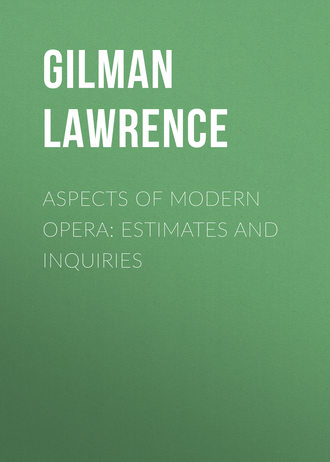Aspects of Modern Opera: Estimates and Inquiries
 полная версия
полная версияAspects of Modern Opera: Estimates and Inquiries
Жанр: культура и искусствозарубежная классиказарубежная старинная литератураопера / балетзарубежная литература о культуре и искусстве
Язык: Английский
Год издания: 2017
Добавлена:
Настройки чтения
Размер шрифта
Высота строк
Поля

